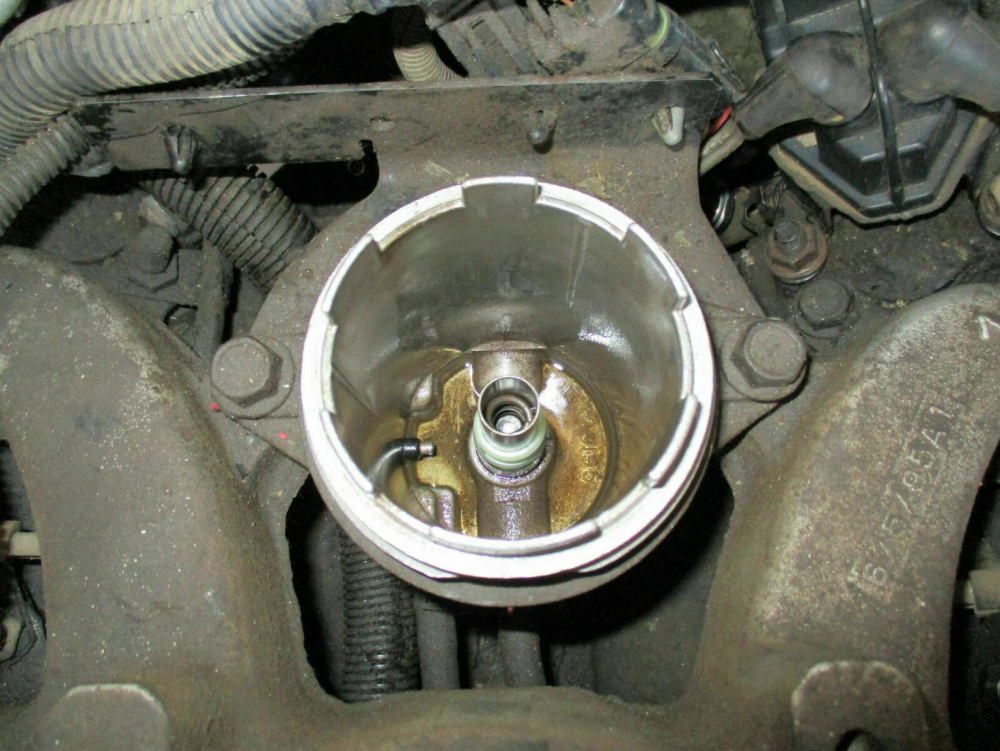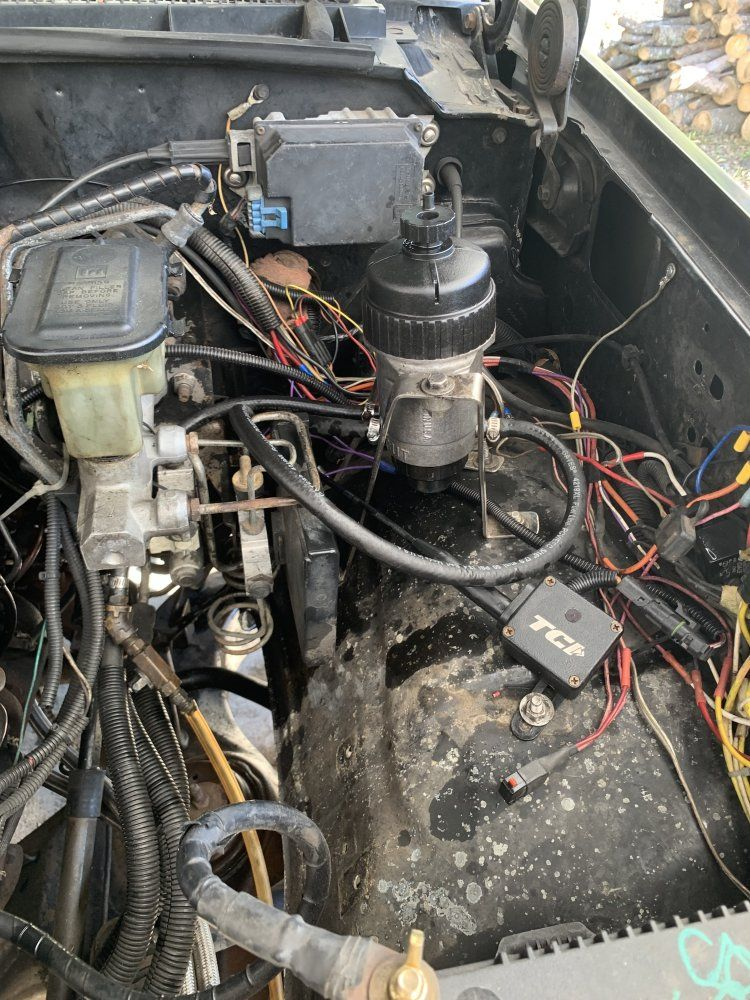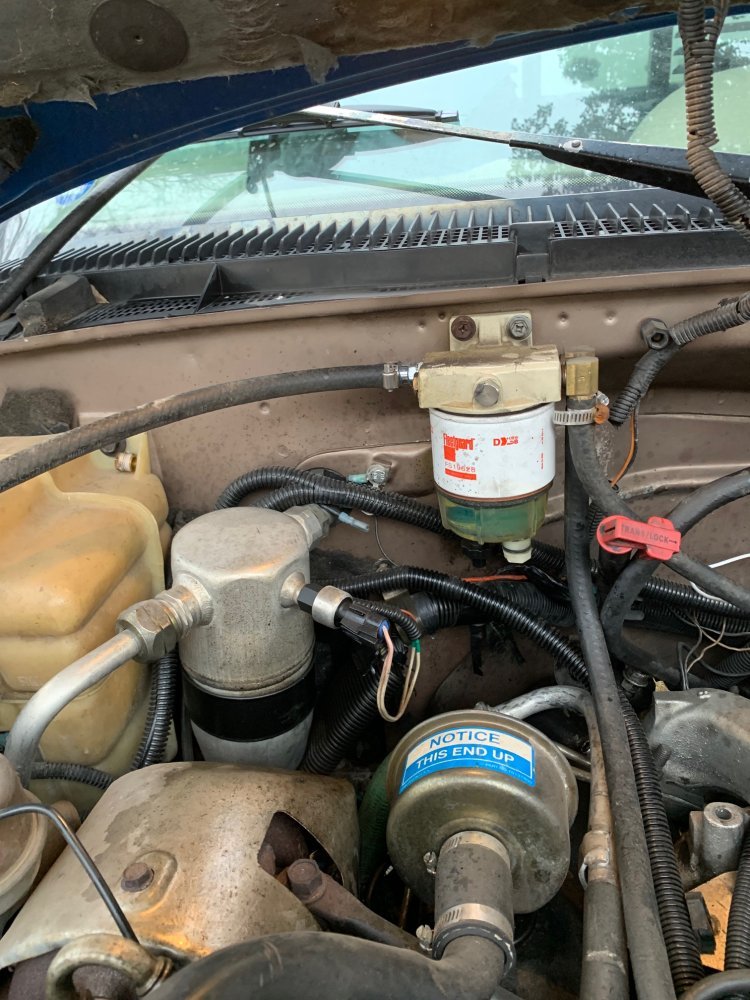royunion
Active Member
97 service van. Noticed filter (under driver area) leaking. New filter but the water sensor was the source. Found a new one, put it on, but it leaked through the sensor screw. Put the original non sensor one on, took out the sensor screw, jb weld on the upper threads, blasted oil off and dry with carb cleaner. Screwed it in two days later reinstalled. Took a lot of tightening over and over to stop the leak around the rubber washer. Each time, the engine was hard to start due air in the system, but leak is now fixed no more little puddle spot under the filter.
But the hard starting returned if sat for more than three hours. I even had to put in a jumper wire to power the lift pump pre start to get the filter full and pressure
But now even with no leak it is impossible to start without starting fluid or carb cleaner or starting fluid. I have an intercooler so it is a long way through the turbo at the rear of the engine down to the intercooler and back up into the manifold. My point is by the time the vapor makes into the manifold and cylinders the crank time is long enough to let the glow plugs be cold.
From cold I use starting fluid lightly, from warm I use carb cleaner and it starts right into a smooth idle.
It threw a 216 and 380 on one time hard cold start. No more codes since.
All this started with me thinking it was bad glow plugs. Ordered El cheapo Chinese glow plugs, and replaced three before dark and started it on the starting fluid sitting three days cold.
The van carries a small generator and starter charger. Got the batteries up enough to fire it up.
Then it seemed fine, and the removed glow plugs were fine. They are 11 year old Bosch DuraTerm
So it started instantly fine four times, up to a four hour spread.
Now it is unpredictable if it will restart even from hot
Fuel pressure does not seem to be a problem and it holds 5 psi off, running 18 cranking and running. There is a mechanical gauge at the IP inlet.
It has never thrown a crank position sensor ((CPS) code but but I am thinking it might be a bad cps
Anyone got other guesses what it might be??
But the hard starting returned if sat for more than three hours. I even had to put in a jumper wire to power the lift pump pre start to get the filter full and pressure
But now even with no leak it is impossible to start without starting fluid or carb cleaner or starting fluid. I have an intercooler so it is a long way through the turbo at the rear of the engine down to the intercooler and back up into the manifold. My point is by the time the vapor makes into the manifold and cylinders the crank time is long enough to let the glow plugs be cold.
From cold I use starting fluid lightly, from warm I use carb cleaner and it starts right into a smooth idle.
It threw a 216 and 380 on one time hard cold start. No more codes since.
All this started with me thinking it was bad glow plugs. Ordered El cheapo Chinese glow plugs, and replaced three before dark and started it on the starting fluid sitting three days cold.
The van carries a small generator and starter charger. Got the batteries up enough to fire it up.
Then it seemed fine, and the removed glow plugs were fine. They are 11 year old Bosch DuraTerm
So it started instantly fine four times, up to a four hour spread.
Now it is unpredictable if it will restart even from hot
Fuel pressure does not seem to be a problem and it holds 5 psi off, running 18 cranking and running. There is a mechanical gauge at the IP inlet.
It has never thrown a crank position sensor ((CPS) code but but I am thinking it might be a bad cps
Anyone got other guesses what it might be??



